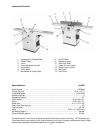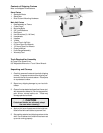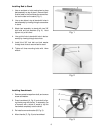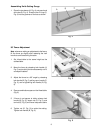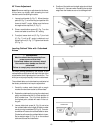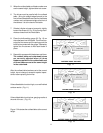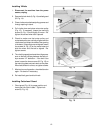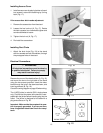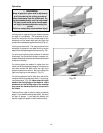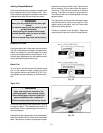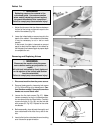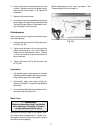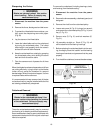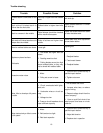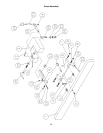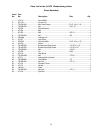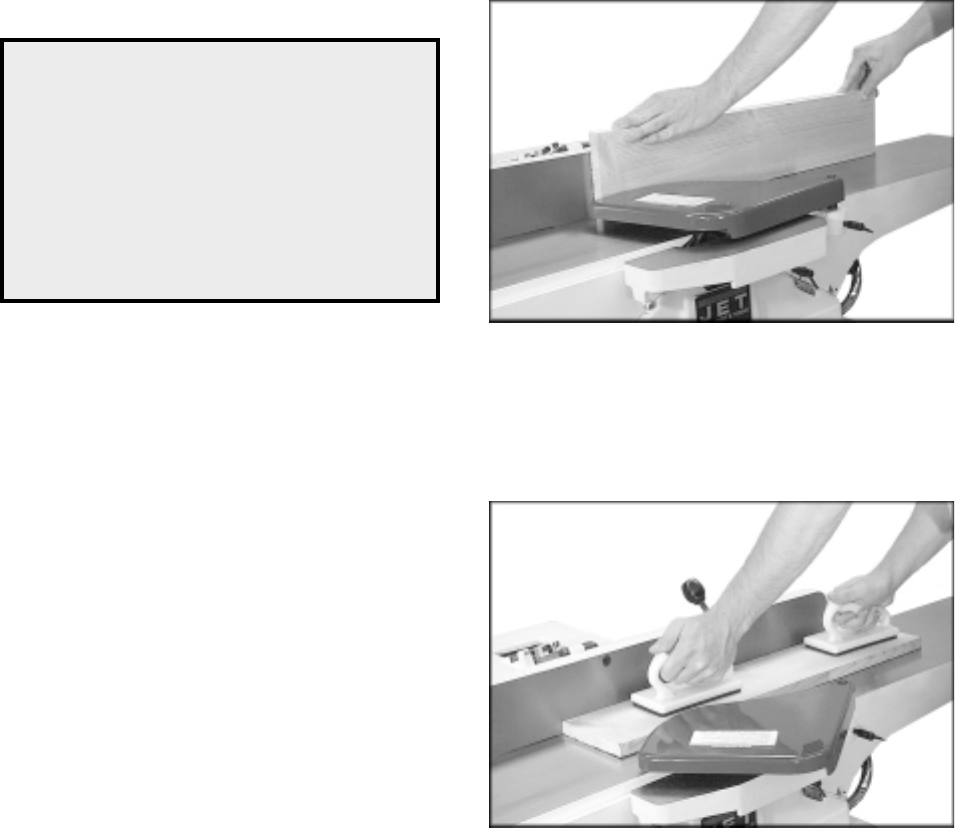
14
Operation
WARNING
Keep all guards in place and in adjustment
at all times during the cutting procedure!
Keep hands away from the cutterhead! Do
not pass hands directly over the cutterhead!
The use of push sticks and/or handle pads
are highly recommended when using the
jointer!
Failure to comply may cause serious injury!
Jointing cuts or edge jointing are made to square
an edge of a workpiece. The workpiece is posi-
tioned on the jointer with the narrow edge of the
workpiece on the infeed table and the major flat
surface of the workpiece against the fence (Fig. 21).
Planing cuts are similar. The major surface of the
workpiece is placed on the table with the narrow
edge of the workpiece against the fence (Fig. 22).
For jointing and planing cuts pressure is directed
three ways; into the fence to ensure a square cut,
forward to advance the stock, and downward to avoid
chatter and vibration.
For jointing when the material is higher than the
fence, the left hand applies pressure into the fence
and down toward the table while the right hand
pushes forward from behind. Be sure to keep the
right hand high up on the material. (Fig. 21)
For jointing material that is lower than the fence,
use push sticks to protect the hands. For planing,
use handle pads. (Fig. 22) Never place the right
hand on the trailing edge of the material. Hand
placement on the trailing edge of the material
may cause the hand to come into contact with
the blade.
Feed work from right to left at a steady, moderate
speed. If you feed the material too slowly, the wood
will burn in places. If you feed the material too
quickly, ridges will appear in the finished surface.
Fig. 22
Fig. 21



